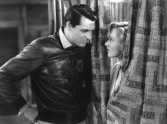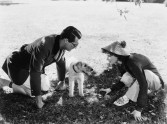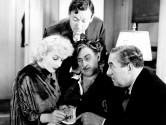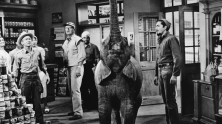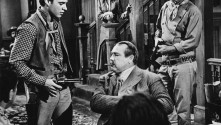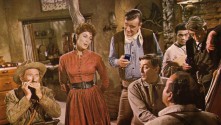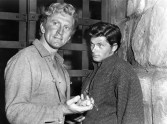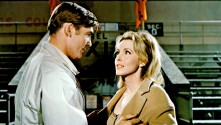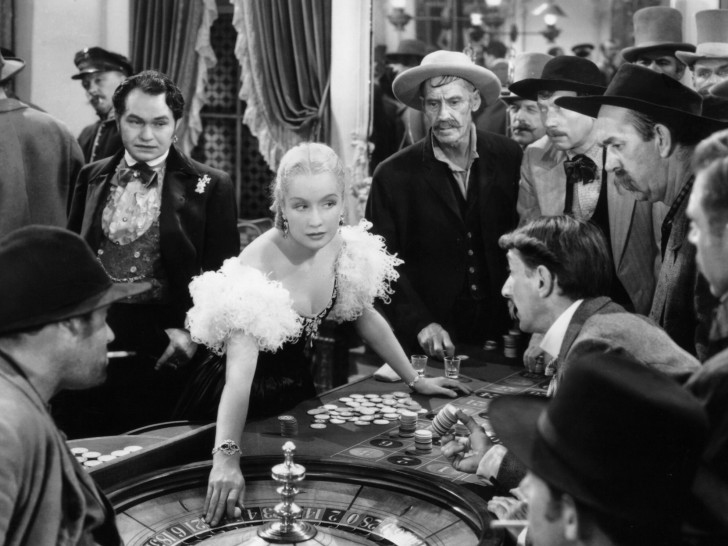
Lured to work with Samuel Goldwyn for the first time by the prospect of his biggest salary yet, Hawks signed on to Barbary Coast with reservations about the powerful producer’s tendencies. Nevertheless, he managed to partially steer the project in his favor, bringing on old screenwriting standbys Ben Hecht and Charles MacArthur to adapt Herbert Asbury’s source material and inaugurating a long, fruitful working relationship with one-of-a-kind character actor Walter Brennan. A potboiler romance set in a decadent Gold Rush-era San Francisco, the film tells the story of the charmingly money-hungry Mary “Swan” Rutledge (played by Lubitsch muse Miriam Hopkins), who, quickly upon her arrival in the city, is indoctrinated into an amoral casino enterprise run by rich mobster Luis Chamalis (Edward G. Robinson). Meanwhile, wide-eyed poet-prospector Jim Carmichael (Joel McCrea) woos Mary with dreams of greener pastures, thus inciting a love triangle that bristles with the threat of violence. Gradually switching gears from its frank depiction of new-money sinfulness to meet the demands of an uplifting romantic melodrama, Barbary Coast occasionally shows the effects of MGM and Hays Code interference, but its evocative portrayal of early San Francisco as a foggy labyrinth of rickety boardwalks and ominous, sky-high ship masts give it a distinct Gothic character all its own.
Part of film series
Screenings from this program
Gentlemen Prefer Blondes

His Girl Friday

The Big Sleep (pre-release version)

A Girl in Every Port

The Cradle Snatchers / Paid to Love

Fazil

Fig Leaves

Man's Favorite Sport?

The Crowd Roars

Today We Live


